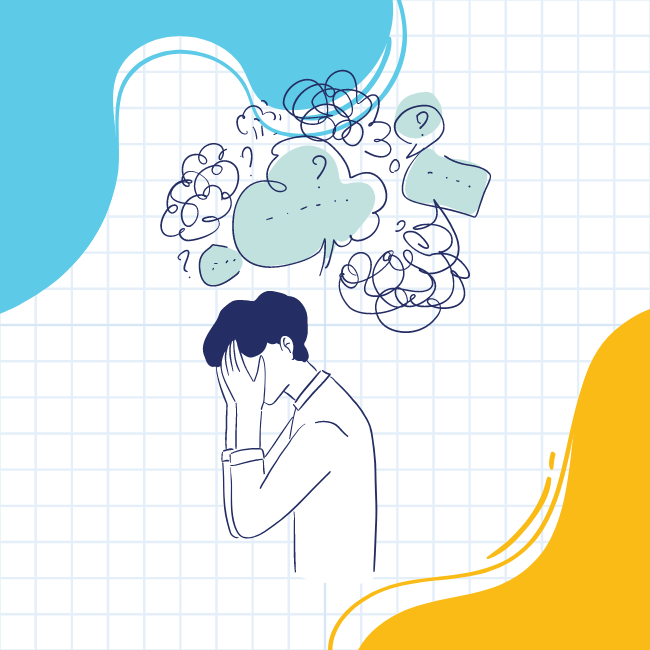Grades don’t define me; why I stopped being grade-conscious

Being grade-conscious is never easy. I constantly put pressure on myself and occasionally have conflicting thoughts. Moreover, I have a strong internal drive to excel and hold myself to high standards. I feel that my grades are a reflection of my success or inability to satisfy these standards.
Grades are not a reflection of one’s worth. While earning excellent grades does have some significance, it does not imply everything. I decided to stop worrying about grades after realizing these factors and concentrate more on improving my learning strategies.

Grades don’t define me. And, it certainly does not define you. Here are the reasons why I stopped being grade-conscious:
Getting anxious constantly
I’ve experienced anxiety about going to school and anticipating every moment I will receive my grade ever since I started to become grade-conscious. It’s a continual worry of mine that I could fall short and let my parents down. Always worrying if I’ll be high enough. The class honors are an additional burden. There is a lot of pressure on me to maintain or improve my rank or I will be demoted.
Moreover, there is always anxiety when I do activities at school since I think that if I fail to do those, it will affect my grades. Every small thing that I do in school worries me. As a result, instead of enjoying my learning and experience and actually learning, I’m just being pressured the whole time and worried.

Dealing with pressure
If there’s anxiety, there’s definitely pressure. I think I am grade-conscious because of my mom. She always pressures me to have high grades and compares me with my other classmates. As a result, I also put pressure on myself that I should be doing these things to meet my mother’s expectations. Although receiving her approval might be rewarding at times, I’ve found that studying has been a continual source of stress and pressure for me.
My teachers are also putting pressure on me. They will constantly nudge me to give it my all. They intervene several times in my personal life to keep me from letting my guard down excessively and keeping my attention only on my academics. Additionally, they let me participate in competitions that I have no idea what to do. Since I’m one of the “geniuses,” I must be taking part. I learn things from those, however, there’s pressure since I’m representing my school.

The ‘real world’ isn’t all about grades
Yes, it’s true, after you study and taste the real world, you’re grades will not entirely matter. One of my professors told me that even if you graduated with honors after college, it will not matter if you will apply for a job. It can be a basis for your knowledge by some other companies, but the real world requires more than that. The real battle in the real world is how are we going to apply the things we learn from school.
Imagine if you graduated with honors but had no idea how to use it. Consider the shame and the perception that you are excellent in school but a failure afterward. Indeed, high grades do put pressure on you. You have to uphold that standard and show that you’re not just great at memorizing. Prove to the ‘world’ that you can also possess critical thinking abilities and know how to use them.

Lousy grading system
The numerical grading system in the country can also be the reason why there are a lot of grade-conscious students. Because it’s numerical, students think that education is not about studying, it’s a competition or some sort of race. Moreover, the grade ‘hyperinflation’ that has been an issue recently can also be blamed on the rotten grading system we have now.
Additionally, students tend to play it safe more when they are worried about their grades. They won’t take intellectual risks and become upset when too challenged. They focus just on the aspects of a subject that are most likely to raise their grade. Additionally, it encourages cheating because the educational system prioritizes grades over student learning.
I stop basing my learning on grades ever since I became aware that the grading system is ineffective at equating my knowledge. Instead, I check to see if I comprehend the teachings on my own and attempt to explain them. If you want to determine whether you comprehend the lesson, try to explain it on your own. Imagine that you are teaching your lesson in front of your invisible students. As Albert Einstein once stated, “If you can’t explain it simply, you don’t understand it well enough.”

The bottom line is: studying should be learning.
Studying should be about learning. Students’ goals should be about acquiring knowledge and skills that will help them in the future, even after studying. The true aim of education is to help us learn, not only to get a job and be ‘globally competitive.’ On the other hand, there are also silver linings to being grade-conscious. It helps me to be punctual, hard-working, and to have perseverance.






